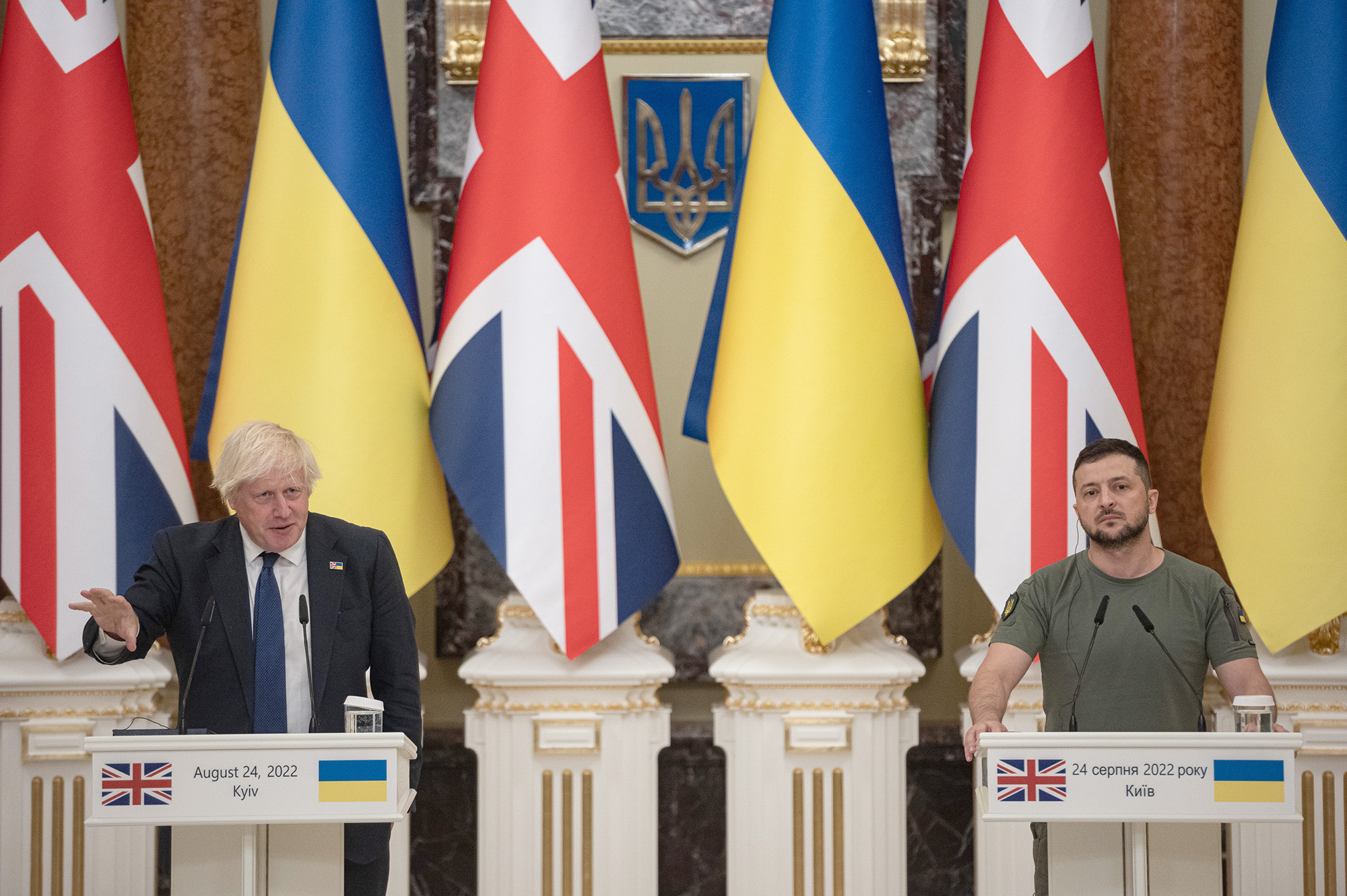
Outgoing UK Prime Minister Boris Johnson has blamed a spike in the cost of living on Russia’s invasion of Ukraine, amid criticism of his government’s lack of response to the growing crisis.
Speaking alongside Ukrainian President Volodymyr Zelensky during a visit to Kyiv on Tuesday, Johnson said that Russian President Vladimir Putin had underestimated Ukraine, as well as “the price the world was willing to pay to support Ukraine.”
“And I’ve come from the United Kingdom where we’re battling inflation that is being driven by the spike in energy prices that is caused by Putin’s war,” said Johnson.
“And we also know that if we’re paying in our energy bills for the evils of Vladimir Putin, the people of Ukraine are paying in their blood,” he added.
Wholesale natural gas prices started increasing last year as countries reopened from their pandemic lockdowns, causing a global spike in demand.
Russia’s invasion of Ukraine in late February, and the resulting energy crunch, has also pushed prices further up.
But Johnson’s government has also come in for heavy criticism for a lack of action in helping people to deal with the cost of living crisis in the UK, where energy bills have risen 54% so far this year and are expected to increase further.
“It is going to be truly, truly horrific for a large number of people,” Keith Anderson, CEO of Scottish Power told STV, a Scottish TV station, on Monday, referring to the price increases.
“This is bigger than the pandemic. It’s a big national crisis,” he added.
So far this year, the government has offered about £33 billion ($39 billion) in support to households to help with energy costs, through a mix of tax cuts, energy bill rebates and direct payments, the Institute for Government said in its report published Tuesday.
But experts say more is needed.
Leaders of the UK National Health Service warned last week of a “humanitarian crisis.”
Many people could fall sick this winter as they “face the awful choice between skipping meals to heat their homes and having to live in in cold, damp and very unpleasant conditions,” they said.
CNN’s Anna Cooban contributed to this report.